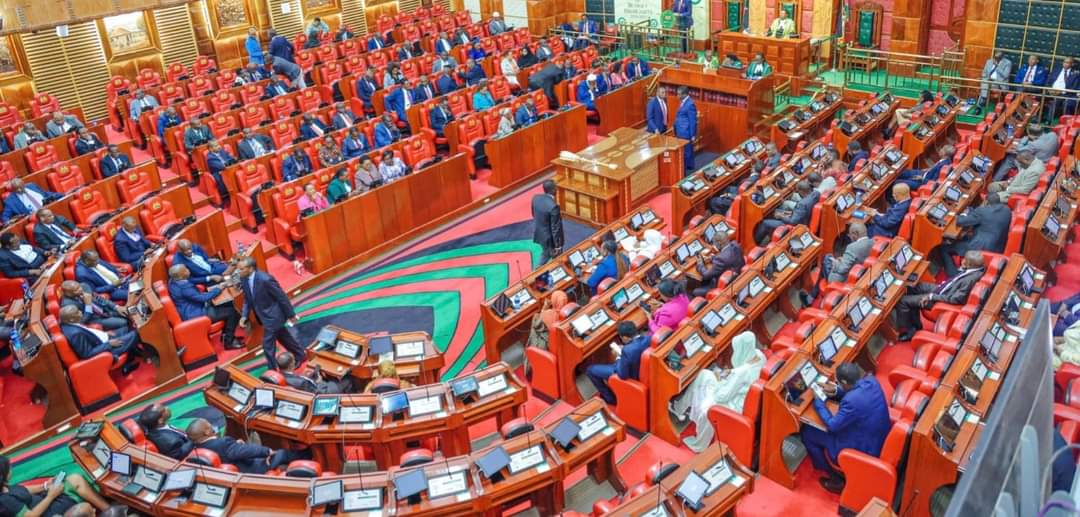The National Assembly on Thursday afternoon, June 19, 2025, overwhelmingly passed the Finance Bill 2025 by acclamation, sending it to President William Ruto for assent.
The approval came after lawmakers rejected several contentious proposals, most notably a bid to grant the Kenya Revenue Authority (KRA) unfettered access to taxpayers’ personal and financial data.
In its report, the Finance Committee, chaired by Molo MP Kuria Kimani, confirmed the removal of the KRA data access clause.
The committee argued that the provision violated Article 31(c) and (d) of the Constitution of Kenya, which guarantees the right to privacy.
They further referenced Section 51 of the Data Protection Act, which strictly outlines conditions for data protection exemptions.
The committee reiterated that Section 60 of the Tax Procedures Act already provides sufficient legal avenues for KRA to access relevant data, provided a judicial warrant is obtained, ensuring due process and legal oversight.
In a win for taxpayers, the lawmakers also rejected the proposed expansion of Pay As You Earn (PAYE) tax bands, which would have introduced new rates of 10%, 17.5%, 25%, 27.5%, and 30%.
This proposal would have also given the Treasury Cabinet Secretary the power to adjust rates by up to 10% every three years for inflation.
Furthermore, MPs voted against eliminating the 15% corporate tax rate for companies involved in local motor vehicle assembly and the construction of at least 100 residential housing units, thereby retaining these incentives.
In a move to offer relief to manufacturers, the National Assembly retained the Ksh500 excise duty per litre on Extra Neutral Alcohol (ENA) for licensed spirituous beverage manufacturers.
Legislators also supported full tax exemption for all pension payments, whether received as lump sums or instalments, clarifying existing provisions.
Among the amendments adopted, the House supported expanding the definition of Significant Economic Presence Tax (SEPT) to include revenues from websites and electronic networks beyond just digital marketplaces.
However, they opposed the proposed Ksh5 million revenue threshold for SEPT, arguing that it would create loopholes for revenue leakage and hinder KRA’s enforcement efforts.
The passage of this amended Finance Bill 2025 signifies a notable parliamentary pushback against certain revenue-raising measures, prioritizing privacy rights and economic incentives in key sectors.
The Bill, which is now expected to raise Ksh24 billion, down from the Treasury’s initial estimate of Ksh30 billion, now awaits presidential signature to become law.










